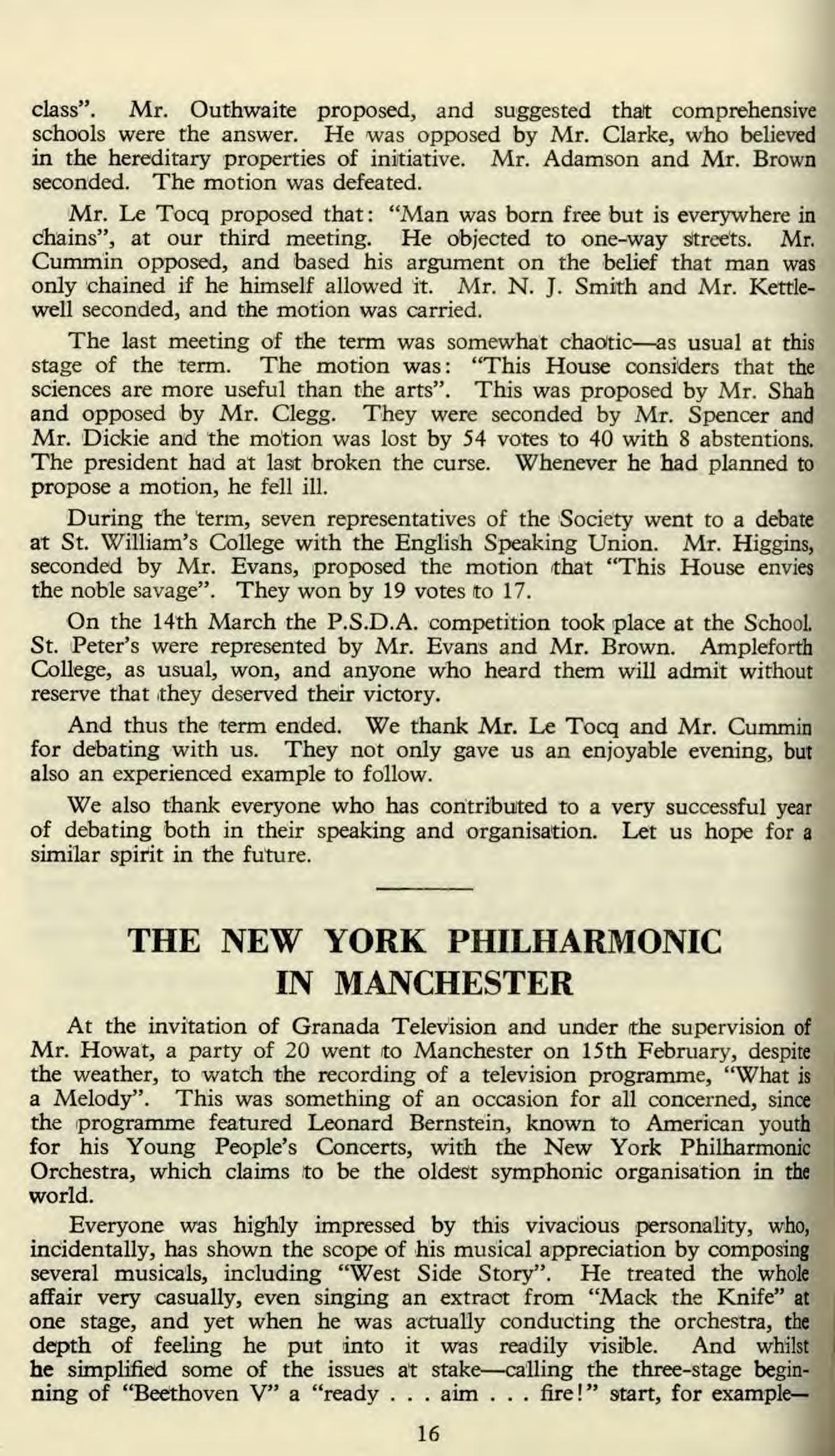
2 minute read
The New York Philharmonic in Manchester
from May 1963
by StPetersYork
class". Mr. Outhwaite proposed, and suggested that comprehensive schools were the answer. He was opposed by Mr. Clarke, who believed in the hereditary properties of initiative. Mr. Adamson and Mr. Brown seconded. The motion was defeated.
Mr. Le Tocq proposed that: "Man was born free but is everywhere in Chains", at our third meeting. He objected to one-way streets. Mr. Cummin opposed, and based his argument on the belief that man was only chained if he himself allowed it. Mr. N. J. Smith and Mr. Kettlewell seconded, and the motion was carried.
The last meeting of the term was somewhat chaotic—as usual at this stage of the term. The motion was: "This House considers that the sciences are more useful than the arts". This was proposed by Mr. Shah and opposed by Mr. Clegg. They were seconded by Mr. Spencer and Mr. Dickie and the motion was lost by 54 votes to 40 with 8 abstentions. The president had at last broken the curse. Whenever he had planned to propose a motion, he fell ill.
During the term, seven representatives of the Society went to a debate at St. William's College with the English Speaking Union. Mr. Higgins, seconded by Mr. Evans, proposed the motion that "This House envies the noble savage". They won by 19 votes to 17.
On the 14th March the P.S.D.A. competition took place at the School. St. Peter's were represented by Mr. Evans and Mr. Brown. Ampleforth College, as usual, won, and anyone who heard them will admit without reserve that they deserved their victory.
And thus the term ended. We thank Mr. Le Tocq and Mr. Cummin for debating with us. They not only gave us an enjoyable evening, but also an experienced example to follow.
We also thank everyone who has contributed to a very successful year of debating both in their speaking and organisation. Let us hope for a similar spirit in the future.
At the invitation of Granada Television and under the supervision of Mr. Howat, a party of 20 went to Manchester on 15th February, despite the weather, to watch the recording of a television programme, 'What is a Melody". This was something of an occasion for all concerned, since the programme featured Leonard Bernstein, known to American youth for his Young People's Concerts, with the New York Philharmonic Orchestra, which claims to be the oldest symphonic organisation in the world.
Everyone was highly impressed by this vivacious personality, who, incidentally, has shown the scope of his musical appreciation by composing several musicals, including "West Side Story". He treated the whole affair very casually, even singing an extract from "Mack the Knife" at one stage, and yet when he was actually conducting the orchestra, the depth of feeling he put into it was readily visible. And whilst he simplified some of the issues at stake—calling the three-stage beginning of "Beethoven V" a "ready . . . aim . . . fire!" start, for example- 16










